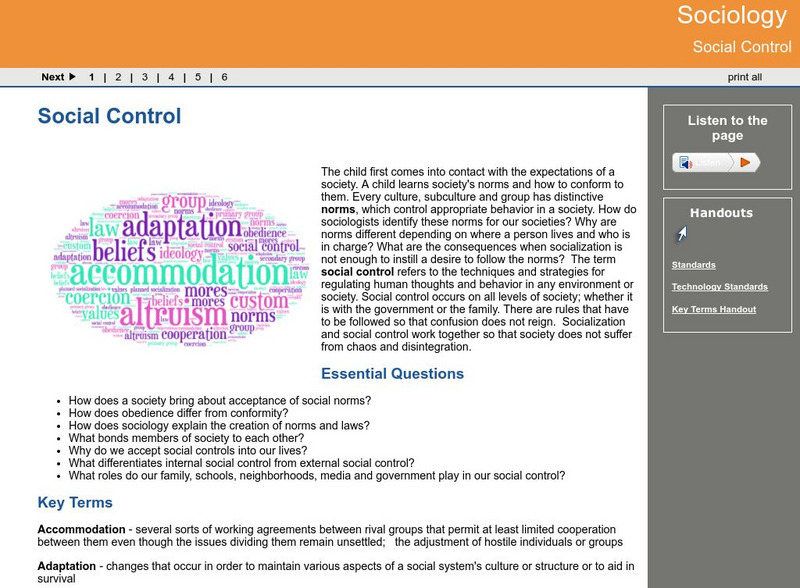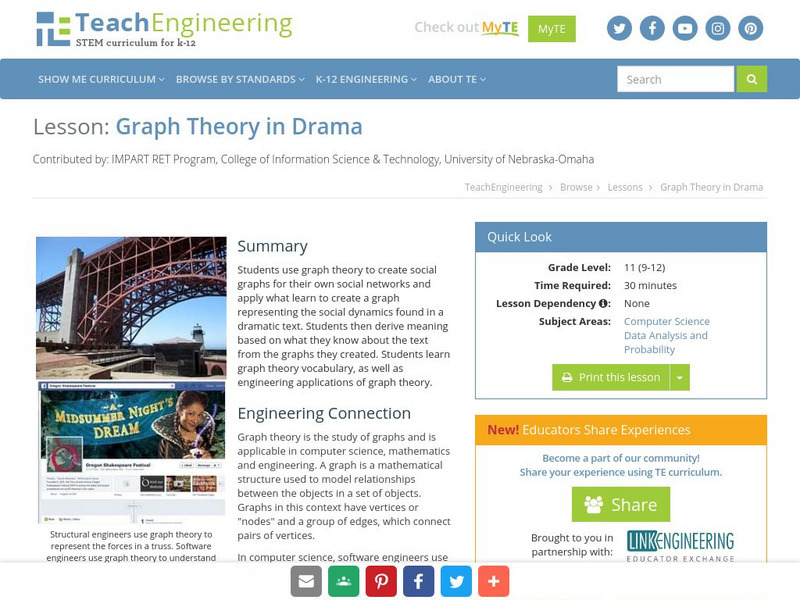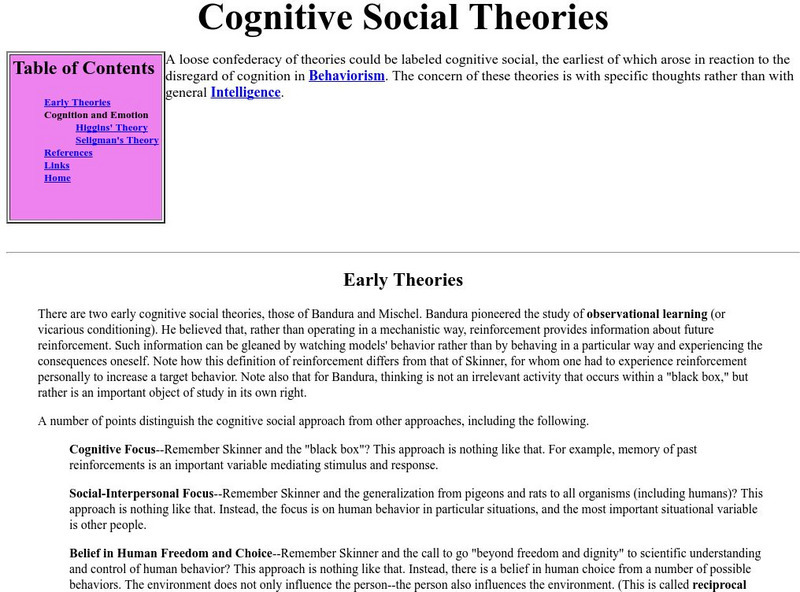Hi, what do you want to do?
Curated OER
Probability: the Study of Chance
Students experiment to determine if a game is fair, collect data, interpret data, display data, and state and apply the rule for probability. Students use a simple game for this experiment.
Curated OER
Time Capsule
First graders collect data in the fall and again in the spring. they use the data from both seasons to compare and contrast changes over time. They put the data from the fall into a box or "time capsule." The teacher encourages students...
Curated OER
Notes on Cell Organelles
Middle schoolers record information and write journal entries on the structure and function of cell organelles while viewing a Powerpoint presentation.
Curated OER
Blending Fiction and Nonfiction to Improve Comprehension and Writing Skills
Students explore a content area by reading both fiction and nonfiction texts on the topic. They do more research online about the topic. After comparing the texts, they create their own written original work, using both narrative and...
Curated OER
Fairy Tales
Pupils read and analyze fairy tales. They discuss the story elements of a fairy tale, compare/contrast various fairy tales, complete an Anticipation Guide, and write an essay comparing the structure of a fairy tale to the structure of a...
Curated OER
Perception And The Interpretation of Experiences
Students describe a problem and propose alternative strategies for the solution. They use a model or drawing to visualize the solution to a problem. Students identify alternative factors to be considered when examining possible...
Curated OER
A Thoreau Look at Our Environment
Sixth graders write journal entries o school site at least once during each season, including sketched and written observations of present environment. They can use sample topographical maps and student's own maps. Students can use...
Curated OER
Windsor Opposes Waste - WOW!
Students participate in paper recycling. They are taught to environmental awareness of recycling and its importance in their future. Students discuss and identify the problems of how they can minimize waste. They brainstorm suggestions...
Florida State University
Florida State University: Theorist Albert Bandura: Social Learning Theory
Discusses social learning theory in the context of criminology. Includes information on a famous study known as the Bobo doll experiment. Also includes biographical information on Albert Bandura.
Other
Theory Into Practice: Social Learning Theory
This site from the Theory Into Practice website explains the concept of Social Learning Theory developed by Albert Bandura. Includes basic principles and examples with links to additional information.
Other
Theories of Learning in Educational Psychology: Learning Theories Site Map
Extensive information about four perspectives of learning theories, and the models that have been developed under each. These include the behaviorist perspective, the cognitive perspective, the humanistic perspective, and the social...
Sophia Learning
Sophia: In Groups, Out Groups, and Social Identity Theory: Lesson 2
At the end of this tutorial, the learner will understand how adherence to group norms establishes in- and out- groups and will be able to relate this to Social Identity Theory. It is 2 of 3 in the series titled "In-Groups, Out-Groups,...
Crescent Public Schools
Crescent Public Schools: Educational Theories
Presents some of the major theories of learning, their principles, and how they impact learning. Covers constructivism, behaviorism, Jean Piaget's developmental model, brain-based learning theory, control theory of motivation,...
Other
Learning Theory: Reinforcement
This site has a nice discussion on the nature and use of reinforcement in learning theory. Describes the four major types of reinforcement and also the use of reinforcement schedules.
Other
Simply Psychology: Social Psychology
Explains what social psychology is, its history, and significant leaders in the field and the theories they developed.
United Nations
Unesco: Education: Most Influential Theories of Learning
Concise descriptions of the major theories of learning.
Georgia Department of Education
Ga Virtual Learning: Sociology: Social Control
Virtual learning module on deviance and social control. Students explore social norms, expectations and rehabilitation. Module includes instruction, activities, questions for writing, handouts, and review. Links to additional learning...
TeachEngineering
Teach Engineering: Graphing Your Social Network
Students analyze their social networks using graph theory. They gather data on their own social relationships, either from Facebook interactions or the interactions they have throughout the course of a day, recording it in Microsoft...
TeachEngineering
Teach Engineering: Graph Theory in Drama
Students use graph theory to create social graphs for their own social networks and apply what learn to create a graph representing the social dynamics found in a dramatic text. Students then derive meaning based on what they know about...
TeachEngineering
Teach Engineering: Using Graph Theory to Analyze Drama
Students analyze dramatic works using graph theory. They gather data, record it in Microsoft Excel and use Cytoscape (a free, downloadable application) to generate graphs that visually illustrate the key characters (nodes) and...
Other
Sage Publishing: Play and the Learning Environment
Play is an important vehicle for developing self-regulation as well as promoting language, cognition, and social competence. This chapter discusses the definition of the physical environment and play, the defining characteristics of...
Other
Personality research.com: Cognitive Social Theories
Discusses cognitive theories of learned behavior including Bandura's Observational Learning (Social Learning).
Georgia Department of Education
Ga Virtual Learning: Sociology: Socialization
Sociology instructional unit on socialization. Students learn theories about human behavior and self development through audio, text, and instructional activities. Links to supplemental reading.
Khan Academy
Khan Academy: Theories of Language Acquisition
This five-question quiz focuses on Theories of Language Acquisition.























